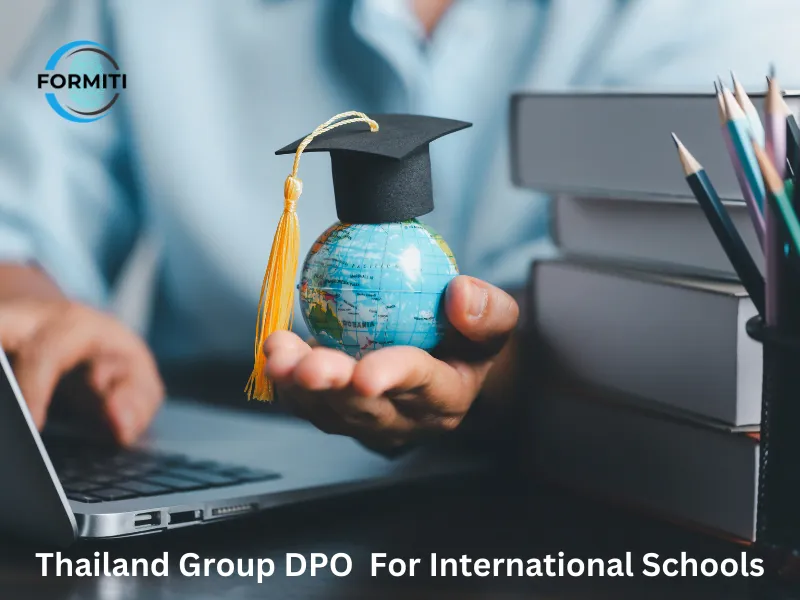Introduction
The rise of digitalisation and data privacy concerns has significantly increased the importance of safeguarding personal data in educational institutions, including international schools. In Thailand, the Personal Data Protection Act (PDPA) imposes stringent requirements for data protection, affecting schools of all sizes, from small kindergartens to large, full-fledged institutions. Thailand’s international schools can explore forming a group and appointing a single Data Protection Officer DPO for Thailand international schools to navigate these demands efficiently and cost-effectively.
The Significance of Data Protection in International Schools
International schools in Thailand deal with extensive personal data during their daily operations. From Admissions, Pastoral Care, School Health Records, School Finance and staff recruitment and visa record details, managing personal data is essential to protect the privacy and rights of individuals in the PDPA.
Challenges Faced by International Schools
Smaller international schools and kindergartens may need help to allocate dedicated data protection and compliance resources. Conversely, larger institutions can face the challenge of coordinating and ensuring uniformity in data protection efforts across multiple campuses and departments. Appointing and maintaining an in-house DPO for each institution is often impractical and expensive.
The Solution: A Collective Approach
Forming a group of international schools and appointing a single Data Protection Officer can provide an effective solution to these challenges. This approach offers a range of benefits:
- Cost Efficiency: By sharing a single DPO among multiple schools, each institution can significantly reduce the financial burden of hiring and maintaining a full-time DPO.
- Unified Compliance: A single DPO can ensure uniform interpretation and implementation of data protection regulations across all member schools. This minimises the risk of inconsistencies and errors.
- Expertise Centralization: The appointed DPO can specialise in data protection and become an expert. This expertise can be shared and applied across the group, ensuring that the schools remain up-to-date with evolving regulations and best practices.
- Scalability: As schools grow or change, the group DPO can adapt their approach to accommodate new members or evolving data protection requirements. This ensures ongoing compliance even as the group expands.
- Streamlined Collaboration: A single DPO facilitates communication and collaboration among member schools, ensuring that data protection practices are communicated and followed consistently.
Implementing the Group DPO Model
To successfully implement the group DPO model, international schools can follow these steps:
- Formation of a Data Protection Group: Identify like-minded international schools interested in collaborative data protection efforts. Could you establish a legal entity or consortium to formalise the group’s structure?
- Appointment of a DPO: Select a qualified DPO to oversee data protection for the group. The DPO should possess a comprehensive understanding of the PDPA and be well-versed in data protection best practices.
- Responsibility Clarification: Clearly define the DPO’s roles and responsibilities, including reporting structures and accountability to member schools.
- Effective Communication Channels: Establish robust communication channels between the DPO and member schools to ensure a seamless data protection management process.
- Continuous Education and Training: Provide ongoing education and training for the DPO and member schools to inform them about changes in data protection laws and best practices.
Conclusion
Collaborative data protection officers offer a strategic and efficient approach to achieving data protection compliance in Thailand’s international schools, regardless of their size or complexity. This model allows schools to pool resources, share expertise, and streamline compliance efforts, leading to substantial cost savings and improved efficiency. As data protection regulations evolve and become more stringent, international schools in Thailand can navigate these complexities more effectively and confidently through collective efforts and a shared commitment to data privacy.
Find out more about our PDPA Services for International Schools with Transparent Pricing Here

